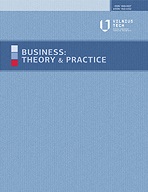Islamic capital market integration and asymmetric information: a study in the five ASEAN countries from the post-global financial crisis
Islamic capital market integration and asymmetric information: a study in the five ASEAN countries from the post-global financial crisis
Author(s): Ibnu QizamSubject(s): Business Economy / Management, Regional Geography, Transformation Period (1990 - 2010), Present Times (2010 - today), Financial Markets
Published by: Vilnius Gediminas Technical University
Keywords: Islamic capital market integration; asymmetric information; a modern portfolio theory; Efficient Market Hypothesis; contract theory; the five ASEAN countries;
Summary/Abstract: This study aims at examining the integration impact of the five ASEAN Islamic capital markets on asymmetric information for ASEAN Economic Community (AEC) development. Utilizing samples of market and financial panel data from 2009 to 2015 among the five ASEAN Islamic capital markets, and applying two-country portfolios of the Islamic capital markets among the five ASEAN countries to measure the different levels of Islamic capital market integration, this study suggests that the different levels of the Islamic capital market integration between Indonesia and Malaysia are found to result in asymmetric information negatively. The strongest Islamic capital market integration between Indonesia and Malaysia affect reduced asymmetric information more consistently than the other two-country portfolios, while the weakest level of integration between the Philippines and any other four Islamic capital markets that affects asymmetric information inconsistently is also supported. These results confirm an interplay between a modern portfolio theory, Efficient Market Hypothesis (EMH), contract theory, and general economic theory, and also provide new insights for stakeholders in investment decisions and strategies, cross-border regulation of economic resources, and other plentiful benefits.
Journal: Verslas: teorija ir praktika
- Issue Year: 22/2021
- Issue No: 1
- Page Range: 121-132
- Page Count: 12
- Language: English

